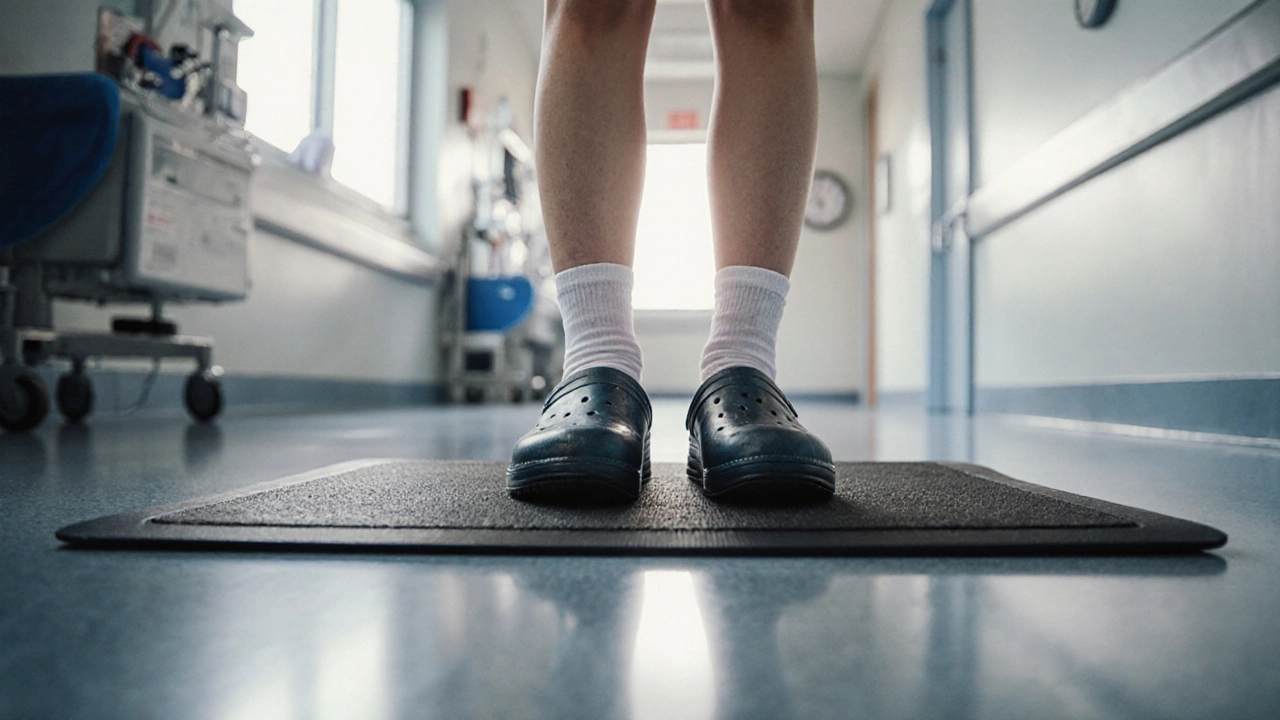Foot Care for Workers: Essential Tips for Comfort and Safety on the Job
When you're on your feet all day, foot care for workers, the daily practices and equipment used to protect and maintain foot health in demanding jobs. Also known as workplace foot health, it's not about fancy creams or expensive gadgets—it's about preventing pain before it starts. Whether you're a nurse, warehouse worker, or construction foreman, your feet are your foundation. Skip proper care, and you’re not just risking blisters—you’re setting yourself up for chronic pain, posture problems, and even time off work.
That’s why work shoes, footwear designed for long hours of standing or walking in industrial or service environments. Also known as professional footwear, it isn’t just about looking right—it’s about function. safety shoes, footwear that meets strict UK standards for impact and puncture resistance. Also known as protective footwear, it is a must in high-risk jobs, but comfort matters just as much. A steel toe won’t help if your shoes dig into your arches after three hours. That’s why so many nurses swear by Crocs for nurses, foam clogs popular in healthcare for their lightweight cushioning and easy-clean design. Also known as nursing shoes, they aren’t a trend—they’re a solution to a real problem: standing 12-hour shifts without wrecking your feet.
Podiatrists don’t just recommend Crocs—they explain why they work, and when they don’t. podiatrists on Crocs, foot specialists who evaluate the medical pros and cons of foam clogs for daily use. Also known as foot health experts, they point out that while Crocs reduce pressure on the heel, they lack arch support for long-distance walking. That’s why the best foot care for workers isn’t one shoe—it’s a system: the right shoe for the job, a clean foot, and daily checks for swelling or redness. It’s not glamorous, but it keeps you working.
What you’ll find below isn’t a list of product reviews. It’s a real-world collection of what people who spend their days on their feet actually use, why they use it, and what experts say about it. From why nurses choose Crocs over traditional shoes to how safety shoes differ from regular work boots, these posts cut through the noise. You’ll see what works, what doesn’t, and what no one tells you until your feet are screaming at 5 p.m.

How to Stop Feet Hurting at Work: Practical Tips for Comfortable Shoes and Daily Relief
Stop foot pain at work with better shoes, supportive insoles, daily stretches, and smart habits. Real solutions for nurses, retail staff, and anyone on their feet all day.
